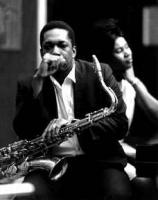
 Against my better judgment, I’m succumbing to the craze among online music fanatics to rewite songs in limerick form. Borrowing the popular idea to rewrite famous poems, Carl Wilson at Zoilus wrote limericks for an assortment of rock chestnuts ranging from Zep’s Jurassic classic “Stairway” to Sonic Youth’s adult-aged “Teenage Riot.” Rock, soul and hip-hop limericks started spreading like wildfire.
Against my better judgment, I’m succumbing to the craze among online music fanatics to rewite songs in limerick form. Borrowing the popular idea to rewrite famous poems, Carl Wilson at Zoilus wrote limericks for an assortment of rock chestnuts ranging from Zep’s Jurassic classic “Stairway” to Sonic Youth’s adult-aged “Teenage Riot.” Rock, soul and hip-hop limericks started spreading like wildfire.
While this was all good fun, most struck me as stronger in concept than in execution. Then Idolator directed me to “There Once Was a Man From Garageland,” Twin Cities critic Nate Patrin’s Ogden Nash-worthy limerick version of the Clash‘s entire London Calling album for his excellent site, Rebel Machine. It’s a complete tour de force. Here’s Patrin’s version of “Lost in the Supermarket“:
Ennui strikes in the middle of Tesco
I don’t fit in where all of the rest go
My life is the pits
But at least Salsoul Hits
And some lager will make it feel less so.
All of the attempts I’ve seen, including Patrin’s, at least have lyrics that can be condensed in limerick form. To make things more sporting, I decided to try John Coltrane’s Live at Birdland album, one of only a few that has changed my life as much as London Calling. Here’s my limerick transcription of Live at Birdland, including the bonus track available only on CD:
Afro-Blue
A fleet-fingered drummer named Mongo
Wrote a rhythm best suited for bongo
But Trane tore it asunder
Elvin thrashed through the thunder
You could hear it from Jersey to Congo.
The rest of the album follows after the click.
I Want to Talk About You
A baritone crooner called Billy
Penned a ballad some found a bit silly
Then John ripped a cadenza
That no member of Mensa
Could explain in Manhattan or Philly.
The Promise
First it’s Gershwin in summer, so sunny
But the storm of soprano’s not funny
What I mostly enjoy
Is the real McCoy
His piano drips bourbon and honey.
Alabama
Bombs in church caused a nation to mourn
Dr. King said to mend what was torn
Coltrane’s dirge touched the sky
And it left no dry eye
As the human cry ached through his horn.
Your Lady
Sax and drums build a magical palace
Where romance has a slight hint of malice
It’s an elegant rhyme
Counted out in waltz time
And he must have been thinking of Alice.
Vilia (CD bonus track)
There once was a widow so merry
She charmed France like a strange Balkan fairy
Lehár’s opera was slight
Coltrane’s horn gave it bite
Like an absinthe poured into a sherry.
Note: The accompanying videos are not of the performances of these songs in Live at Birdland. “I Want to Talk About You” is from a 1962 performance in Stockholm; “Afro-Blue” and “Alabama” are from 1963 performances on Ralph J. Gleason’s TV show Jazz Casual.
You win the universe.